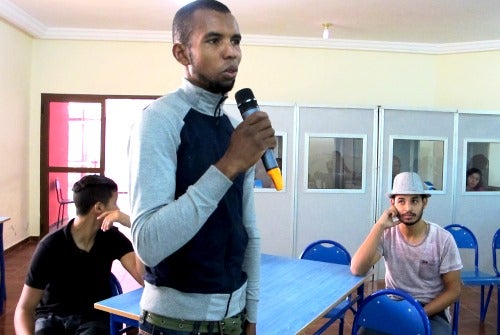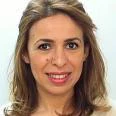
We had set up a meeting with young people held back by their lack of a solid secondary-level education. We wanted to hear their feedback on the most effective ways to help them escape the state of economic exclusion they find themselves in. This was all part of the World Bank’s preparation for a youth project in Morocco.
Our findings were alarming: young people’s potential is so under-used, especially in Morocco’s less developed regions, because of the lack of educational and economic structures to channel their energy, as well as to train and give them the kind of skills they need for making something of their future.
“I work full time for Facebook”
This is what 19 year-old Ahmed said when I asked him if he had a job. He described his routine to me: “ I wake up late every day, then head to the coffee shop where I spend hours chatting with friends and bothering girls in the street.”
He said he wished things could be different, though, and decided to share his full background with me to explain more fully.
It all started in primary school: Ahmed, like many of his friends, would feel happy whenever he heard that one of his teachers was going to be absent for weeks or months on end. (Teacher absenteeism is a common phenomenon in schools where there is little or no accountability.)
His parents, themselves illiterate, were too consumed with providing for their family to keep track of their children’s schooling. So when he went to secondary school, Ahmed found the level of skills he had acquired in primary had not equipped him to cope. Soon, he started skipping classes, preferring to hang out with his friends and play soccer than feeling left out by an educational system that provided neither the space nor the support for “dunces”, as he put it.

are an added hindrance to economic inclusion.
Ahmed and his friend Karam shared another, even more alarming aspect of their current plight: that many marginalized and uneducated young people like them have become vulnerable to extremist groups, which brainwash them and provide them with a minimum of capital to start a small business in the informal sector. Both young men said their neighborhood was full of examples of such youth. Some of their former classmates, they said, had even ended up as “martyrs” in Syria.
In the absence of concerted efforts to accommodate them, these kids are going from being excluded by the education system to getting recruited by extremist groups.
Training and support
Hakam, the eldest in the group of young people we met, told me he had accumulated training in no less than three different professions: as an electrician, a builder in construction, and in laying cables. “ But for what?” he asked. After the local sugar refinery closed in the 1990s, and with the transition of most of the local population from agricultural to urban jobs, people in Sidi Slimane have had no alternative other than to leave their small city and look for work elsewhere. But how can most of them afford to do that?
Hakam said most undereducated young people find themselves trapped in a system that gives them no options. They lose hope. With the limited number of local jobs on offer monopolized by the local elite, and no funding available to help young people start businesses, their main occupations have become inactivity, drugs, and social media.
The perspectives for girls are not any different: 17 year-old Meriem, an IT trainee, said local attitudes and the absence of basics, like security, for women—especially in public transport—were an added hindrance to girls’ economic inclusion.
The World Bank’s project Investing in Youth Opportunities in Morocco aims to provide disadvantaged, less educated young people with the type of support that will help tackle such bottlenecks. Currently being prepared, the project is being built on two pillars:
- economic inclusion through soft skills, on-the-job training and placement, and support for entrepreneurship;
- and (social integration through youth-led community development initiatives, volunteering, community sports and cultural activities, as well as peer to peer mentoring.
In designing the project, the Bank team held marathon consultations with different stakeholders: from donors to government ministries, to training agencies and members of the private sector and civil society.
But voices from the ground like those of Ahmed, Hakam, and Mariam deserve to be heard, too—loud and clear. In Morocco, urgent action is needed to help our young people be the kind of citizens we want our own children to become.


Join the Conversation